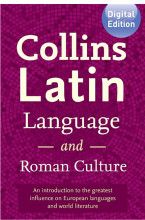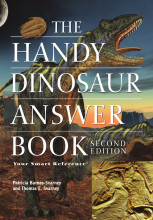Summary: The Handy Psychology Answer Book | 9781578593545 | Lisa J Cohen
- This + 400k other summaries
- A unique study and practice tool
- Never study anything twice again
- Get the grades you hope for
- 100% sure, 100% understanding
Read the summary and the most important questions on The Handy Psychology Answer Book | 9781578593545 | Lisa J. Cohen
-
1 Introducing The Basics
-
1.2 Psychology Before Psychology
This is a preview. There are 22 more flashcards available for chapter 1.2
Show more cards here -
When was the field of psychology established?
Wilhelm Wundt (1832-1920) is credited with first establishing psychology as an independent Science. He opened the first scientific laboratory to study psychology in 1879 at the university of Leipzig. -
Did Homer have a Concept of the Mind?
No, characters' motivations are imposed on them through the whims of the gods. Athena makes Odysseus do whatever he does. Abstract ideas of mental life, of consiousness, do not exist and awareness is understood in concrete bodily terms. -
In wich way was Aristotle much more enamored of the natural world?
He believed knowledge had to come from systematic logical reasoning about our observations of nature. He maintained that the capacity for logical reasoning is innate, but the content of our knowledge can only be grasped through our senses. In this way, Aristotle anticipated the foundations of modern science. -
Did Plato's ideas anticipate Freud in any way?
Plato also had ideas about emotions and emotional control that anticipated Freud's theories of the ego and the id. Plato's three-part division of the soul intro Appetite, Reason, and Temper (the spirited part of the soul) has been linked to Freud's division of the mind into the Id, Ego, and Superego.
Plato also believed in controlling the bodily passions in order to turn one's desire toward loftier goals, as described in his metaphor of the soul as a charioteer with a pair of winged steeds. -
About what is Plato's metaphor of the soul as a charioteer with a pair of winged steeds?
One steed is immortal like the steeds of the gods and aspires toward contemplation of spiritual beauty. The other steed is mortal and plunges toward earth and toward animalistic passions and desire.
The chariot must rein in the steed of animal appetites in order for the soul to gain true happiness.
We can link the earthly steed to the Id and the Charioteer to the Ego. More loosely, we could tie the immortal steed to the superego. -
What is intrinsic Telos?
Intrinsic Telos suggests taht the aim of the organism is inherent in its nature, an acorn is innately programmed to grow into a tree. -
What is extrinsic Telos?
Extrinsic Telos refers to a purpose imposed by an external force, such as a deity. -
What did Cicero (106-42 BCE) say about the Mind?
Cicero, the famous orator, gave a detailed description of the passions. He grouped the passions into four categories:- Discomfort
- Fear
- Pleasure or Joy
- Desire
-
How does the belief in Demonic Possession relate to Psychology?
Mental illness, in particular, was seen to be caused by demonic possession. It was believed that Jesus exorcised demons, a task that was performed by priests by the time of the Middle Ages. -
What import text in the history of medicine did Avicenna write?
The Canon of Medicine.
- Higher grades + faster learning
- Never study anything twice
- 100% sure, 100% understanding
Topics related to Summary: The Handy Psychology Answer Book
-
Psychology Before Psychology
-
Psychology in other Cultures
-
History and Pioneers
-
John B. Watson and B.F. Skinner
-
Major Movements in Psychology - Behaviorism
-
Major Movements in Psychology - Gestalt Psychology
-
Major Movements in Psychology - Psychoanalytic Theory
-
Major Movements in Psychology - Jungian Analytical Psychology
-
Major Movements in Psychology - Humanistic Theories
-
Major Movements in Psychology - Attachment Theory
-
Major Movements in Psychology - Sociobiology and Evolutionary Psychology
-
Major Movements in Psychology - Psychology as a Science
-
Major Movements in Psychology - Psychological Tests
-
Major Movements in Psychology - Intelligence Testing
-
Brain and Behavior - Basis Concepts of Neuroscience
-
Brain and Behavior - The Cortex
-
Brain and Behavior - Beneath the Cortex
-
Brain and Behavior - The Neuron
-
Brain and Behavior - Brain Development
-
Brain and Behavior - The Aging Brain
-
Brain and Behavior - Motor Behavior and Intentional Action
-
Brain and Behavior - Emotions in Mammals
-
Brain and Behavior - Frontal Control of the Limbic System
-
Brain and Behavior - Neurotransmitters and other Brain Chemicals
-
Psychological Development Across the Lifespan - Margaret Mahler
-
Psychological Development Across the Lifespan - Jean Piaget's Theory of Cognitive Development
-
Psychological Development Across the Lifespan - The Role of Culture
-
Psychological Development Across the Lifespan - Infancy
-
Psychological Development Across the Lifespan - Toddler Years
-
Psychological Development Across the Lifespan - Preschool Years (3-5)
-
Psychological Development Across the Lifespan - School Age Children (6-11)
-
The Psychology of Everyday Life: Love, Marriage, and the Baby Carriage
-
The Psychology of Everyday Life: Motivation and the Search for Happiness - The Psychology of Happiness
-
The Psychology of Everyday Life: Motivation and the Search for Happiness - Positive Psychology
-
The Psychology of Everyday Life: Motivation and the Search for Happiness - Happiness across Cultures
-
The Psychology of Everyday Life: Motivation and the Search for Happiness - The Psychology of Money
-
The Psychology of Everyday Life: Motivation and the Search for Happiness - The Biology of Money
-
Group Dynamics and the Public Sphere - Group Dynamics

































